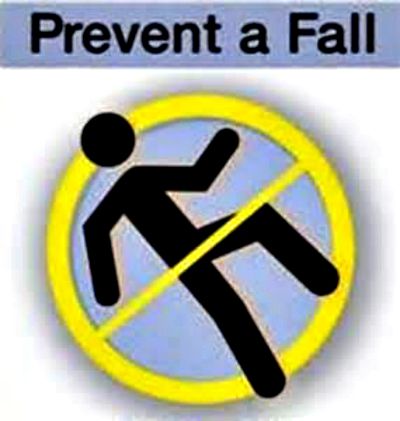As a Paramedic, for 24 years, I can’t tell you how many calls I responded to where there was an elderly individual who has fallen. Now that I am retired, I often fear for myself even, if I was to fall, what would happen. Many things can cause a fall, whether it be someone just losing their balance, maybe a medication made them dizzy, or a medical condition caused them to pass out. No matter what the reason is, a fall can be scary, and life-threatening if precautions are not made. Check out some wonderful information below that I wanted to share with you. ~Tom
NCOA’s 8th annual Falls Prevention Awareness Day highlights education and action
September 23, 2015 – Today – the first day of fall – is Falls Prevention Awareness Day, and the National Council on Aging (NCOA) is asking all Americans to Take a Stand to Prevent Falls among older adults.
Too often, falls can cause older adults to lose their independence. Every 20 minutes, an older adult dies from a fall, and every 13 seconds an older adult is treated in an emergency department for a fall-related injury. Up to 30% of people who fall suffer moderate to severe injuries, making it harder for them to live independently.
“Falls Prevention Awareness Day provides a valuable opportunity to educate older adults and the community about falls risks and how to reduce their risks,” said Kathleen Cameron, Senior Director of NCOA’s National Falls Prevention Resource Center. “Falls prevention is about being healthy and proactive. There are simple steps that all of us can take to help older adults stay safe and on their feet.”
NCOA leads the National Falls Prevention Resource Center that increases public awareness and educates consumers and professionals about the risks of falls and how to prevent falls, and promotes evidence-based falls prevention programs.
In July, the National Falls Prevention Resource Center released the 2015 Falls Free® National Action Plan—a blueprint describing what should be done to reduce the growing number of falls and fall-related injuries among older adults.
During Falls Prevention Awareness Day on Sept. 23, state and local falls prevention coalitions, community-based organizations such as senior centers, health care providers and others across the United States will offer screenings, educational activities, and programs to help older adults understand their falls risk and take steps to prevent falls.
Among these steps, experts recommend that older adults:
• Participate in a physical activity program with balance, strength training, and flexibility components.
• Consult a health professional about getting a falls risk assessment.
• Have their medications reviewed by a doctor or pharmacist periodically.
• Get their eyes and ears checked annually.
• Make sure their home environment is safe and supportive.
• Talk to their family members about falls prevention.
“Falls do not have to be a normal part of aging,” said Cameron. “Small changes can have a big impact. Get educated early and take advantage of the support available in your community.”
Find more tips for preventing falls at ncoa.org/fallsprevention (original source)
Disclosure of Material Connection: Some of the links in the post above are "affiliate links." This means if you click on the link and purchase the item, I will receive an affiliate commission. Regardless, I only recommend products or services I use personally and believe will add value to my readers. I am disclosing this in accordance with the Federal Trade Commission's 16 CFR, Part 255: "Guides Concerning the Use of Endorsements and Testimonials in Advertising."
Discover more from Tom's Take On Things
Subscribe to get the latest posts sent to your email.



Since this is coming up next month, I’d thought I’d visit the topic. I’ve worked with the elderly as a nurse and falls are a huge concern to most everyone that age. Some physical therapists have recommended teaching the elderly how to fall, i.e.,practice so you know how to react and lessen injuries.